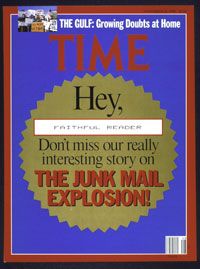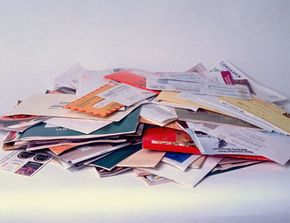So you're intensely interested in learning what kind of laundry detergent is on sale at your local dollar store. You enjoy comparing nuances among descriptions of the Happy Family dish from competing Chinese restaurants' menus. Pre-approved credit card offers and sweepstakes that intimate you may have already won make you feel like someone out there loves you -- even though sometimes they're addressed to "Occupant." Providentially, you need only hang around your mailbox for a spell, and all of these delights and more will find their way to you.
Not everyone would agree with your enthusiasm for what most people consider junk mail (also called direct mail). You may be aghast at the thought, but there are even people who would love to no longer receive unsolicited mail.
Advertisement
There was a time when people received mail only from people they knew or with whom they did business. While an occasional direct mail catalog may have found its way into the mailbox of a potential customer, in the late 19th century, sundry merchants Montgomery Ward and Sears Roebuck really began direct mail campaigns in earnest with their catalogs. This marketing idea gathered steam: In the 21st century, more than 62 billion pieces of junk mail are sent annually [source: Circle of Life Foundation].
This unwanted mail from businesses and nonprofit organizations is more than simply annoying: It's also destructive. All of that junk mail requires approximately 100 million trees and 28 billion gallons of water to be produced [source: University of Oregon]. Even worse, junk mail like prescreened credit card offers provide great opportunities for identity thieves to establish lines of credit in your name.
Clearly, there's ample reason for people to hate junk mail. And about as long as junk mail's existed, people have looked for ways to thwart it. But is it possible to stem the tide of unwanted mail? It certainly is. Find out how on the next page.
Advertisement



